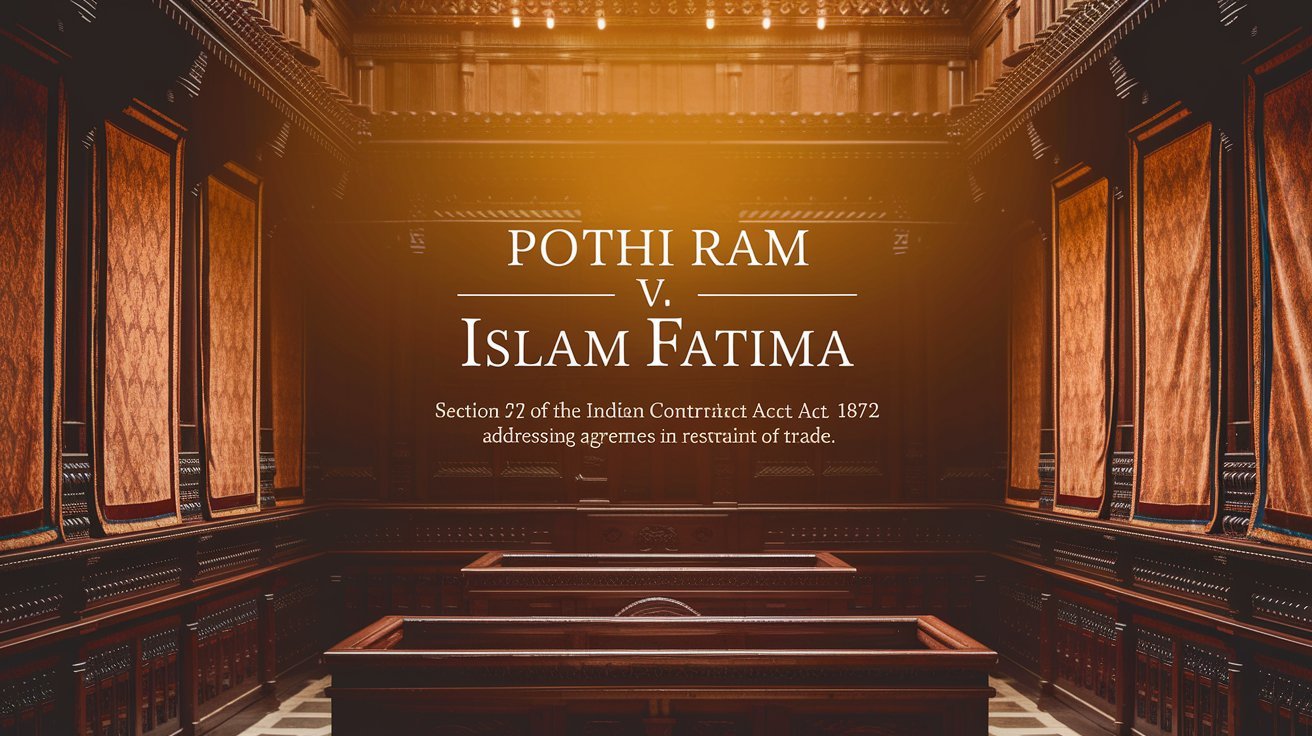Pothi Ram v. Islam Fatima 1915 (Case Summary)

In this case, the Hon’ble Allahabad High Court examined the applicability of Section 27 of the Indian Contract Act, 1872, which addresses agreements in restraint of trade. This case highlights the necessity for certain agreements that facilitate harmonious business operations among parties, provided they do not entirely prohibit lawful professional activities.
Table of Contents
ToggleFacts of Pothi Ram v. Islam Fatima
- The plaintiff and the defendant, both landholders, entered into an agreement with other neighboring landholders to ensure that cattle markets on their respective lands would not be held on the same day.
- The agreement aimed to avoid competition between markets and ensure the efficient functioning of each landholder’s market.
- The defendant, Islam Fatima, allegedly violated the agreement by holding a cattle market on the same day as the plaintiff.
- The plaintiff, Pothi Ram, filed a suit seeking enforcement of the agreement and damages for the breach
Issues framed
- Whether an agreement between landholders to regulate the operation of cattle markets constitutes a restraint of trade under Section 27 of the Indian Contract Act, 1872?
- Whether such an agreement is enforceable under Indian contract law?
Subordinate Court Judgment
The trial court dismissed the suit, holding that the contract was void under Section 27 of the Indian Contract Act, 1872, as it amounted to a restraint of trade.
The plaintiffs appealed the decision and the first appellate court reversed the trial court’s ruling and remanded the case for trial on merits.
The Respondent (Initially defendants) aggrieved by the decision of the first appellate court appealed to the Hon’ble Allahabad High Court.
Judgment of Pothi Ram v. Islam Fatima
The Allahabad High Court analysed the extent and scope of Section 27 of the Indian Contract Act, 1872.
The court held that landholders allowing markets to be conducted on their lands in exchange for tolls or fees are not engaged in the trade or business of selling cattle. If such an agreement restricts anything, it pertains to the use of land, not to the exercise of trade or business. The court ruled that the agreement did not restrain trade or business within the meaning of Section 27. Instead, it was a reasonable regulation of competition among landholders for the orderly operation of markets.
The court upheld the first appellate court’s decision, affirming that the agreement was not void under Section 27 and dismissed the appeal., holding that the agreement was valid and enforceable. The arrangement did not violate Section 27 of the Indian Contract Act, as it pertained to landholder activities, not trade or business.





